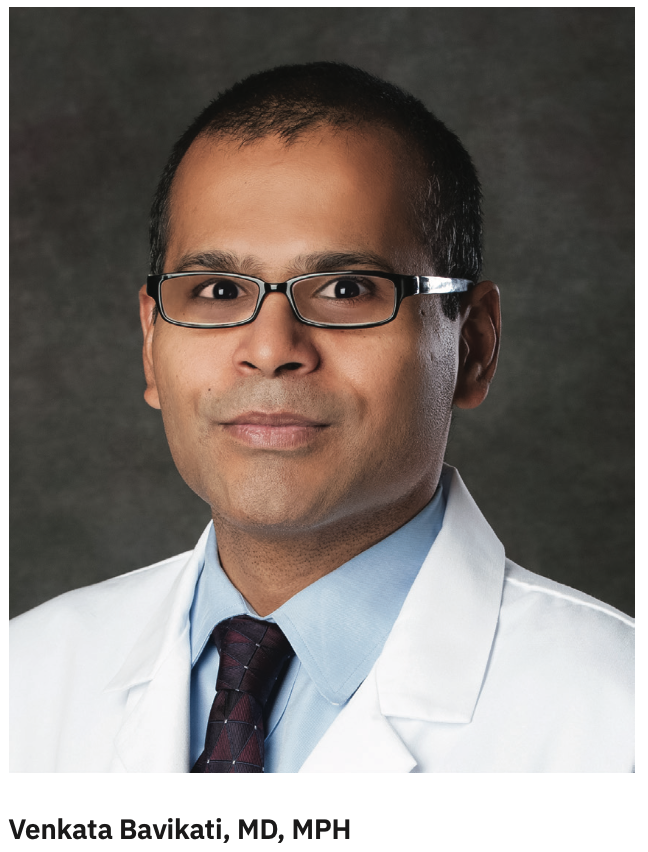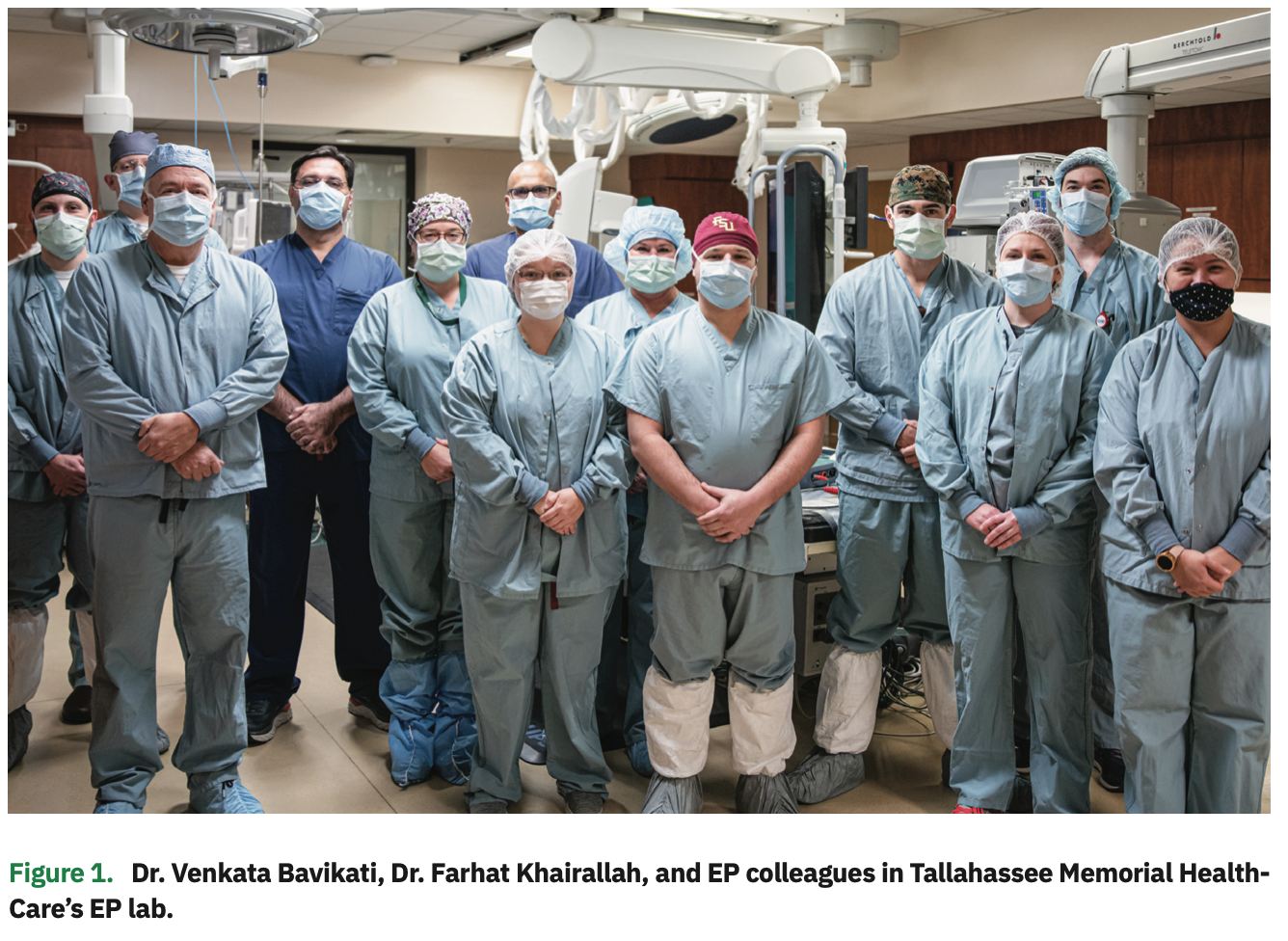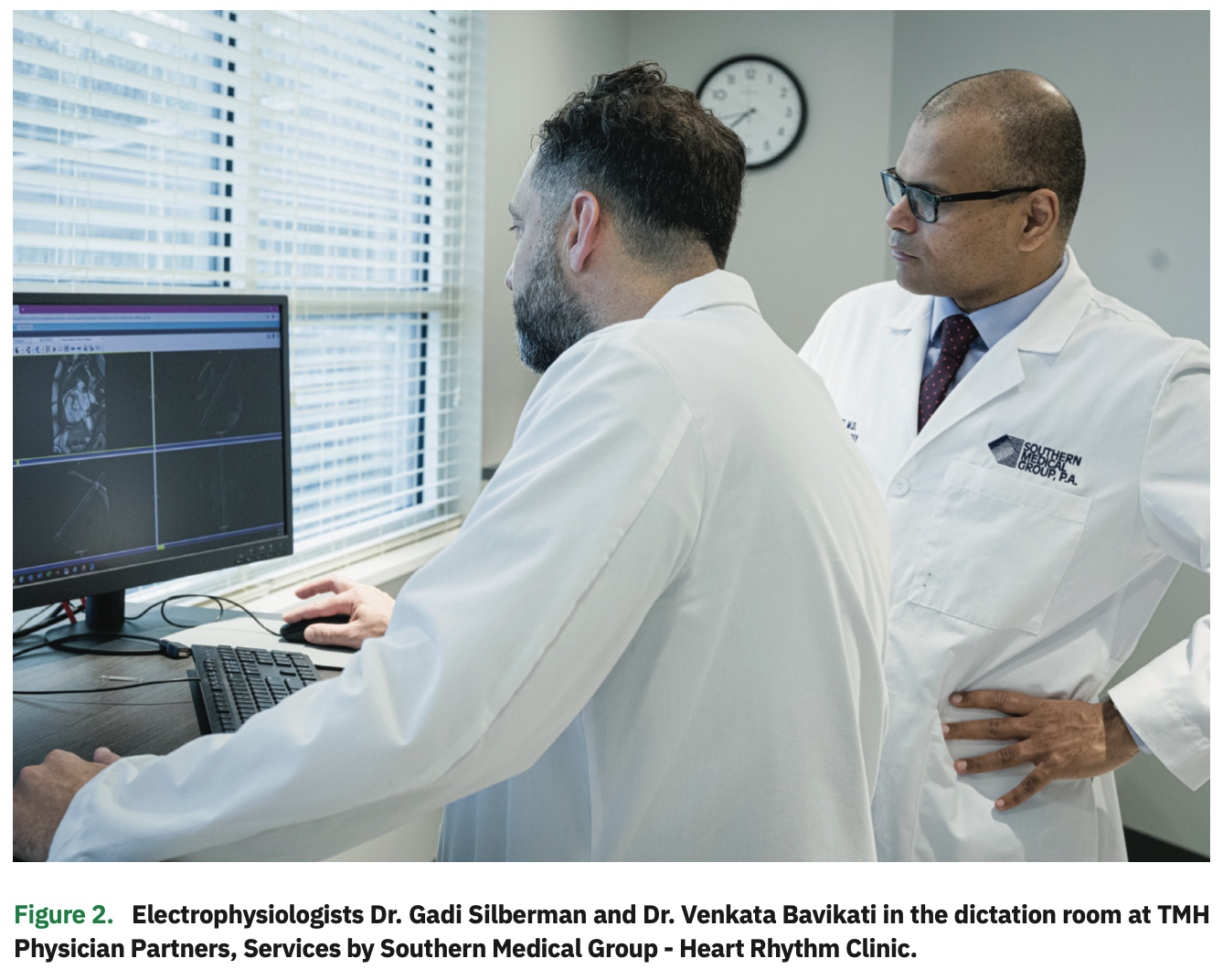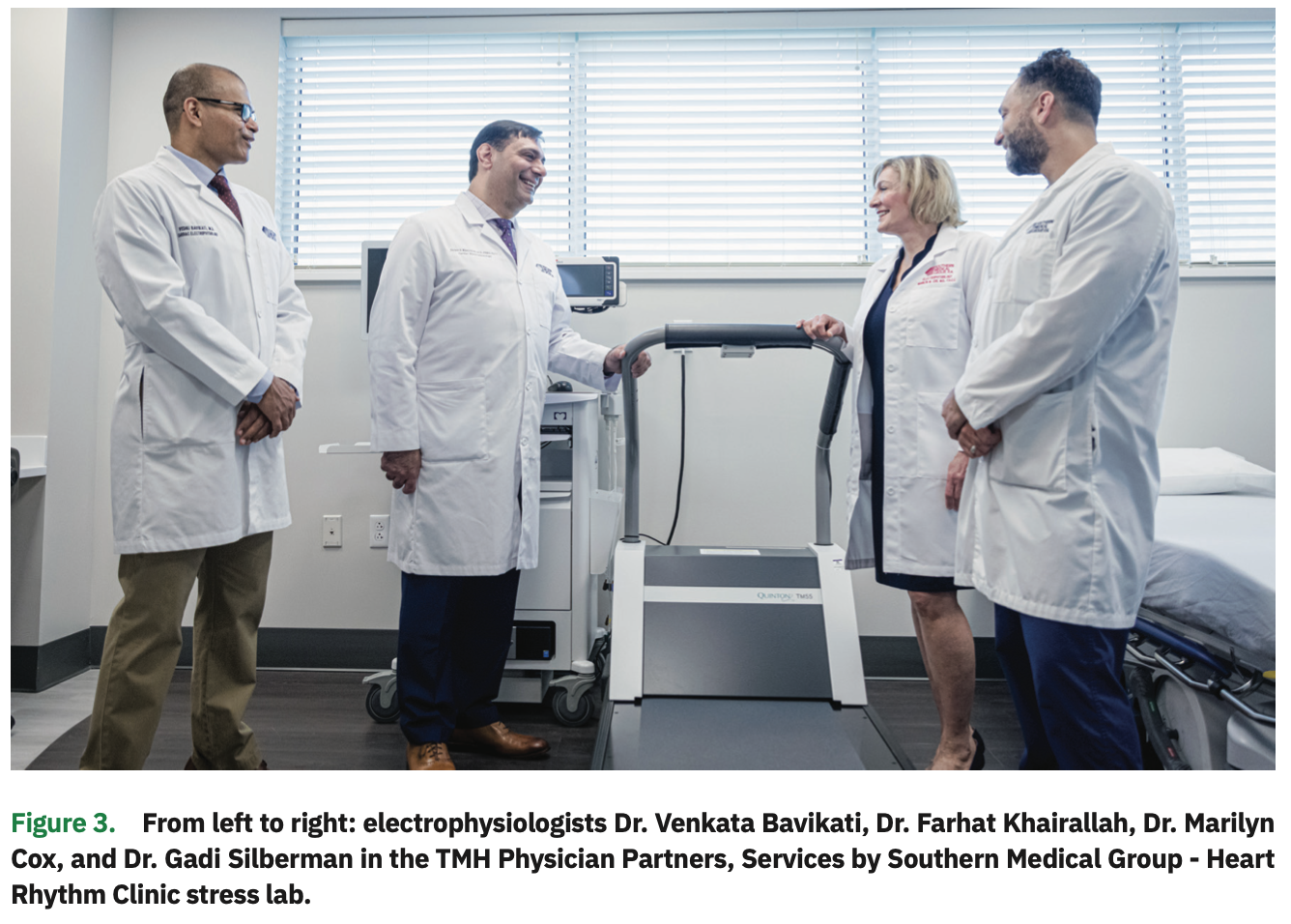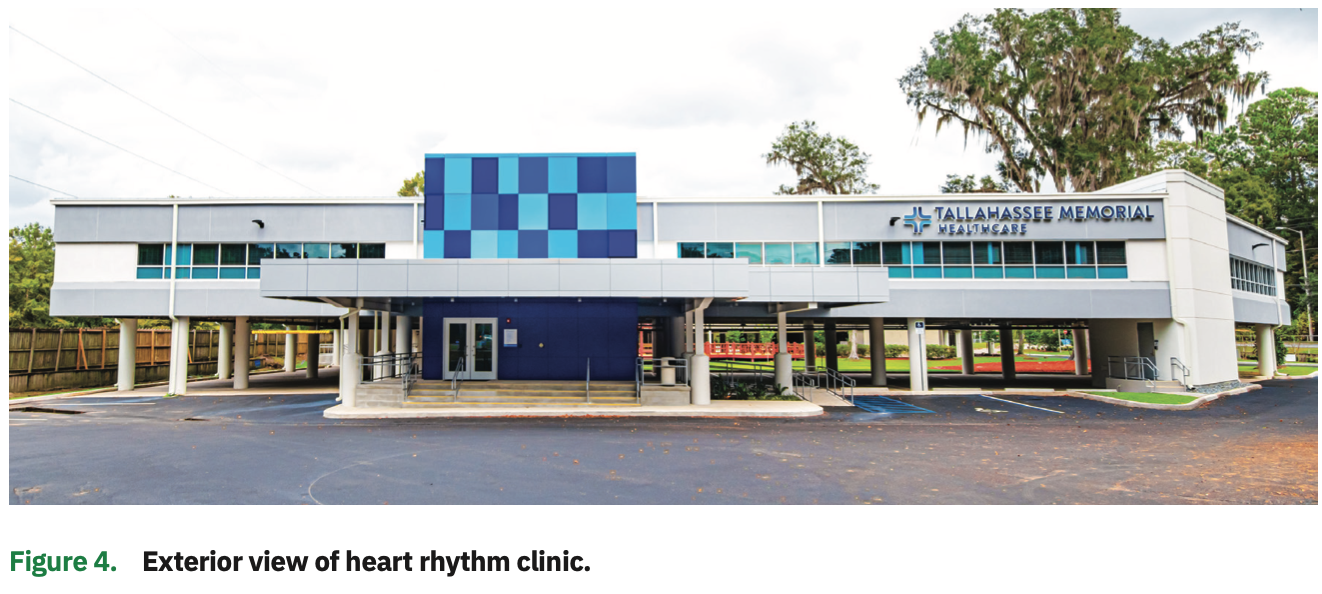Considerations for a New Heart Rhythm Clinic: Experience at Tallahassee Memorial HealthCare
In this interview, EP Lab Digest speaks with electrophysiologist Venkata Bavikati, MD, MPH about the new Heart Rhythm Clinic at Tallahassee Memorial HealthCare (TMH).
How will the new Heart Rhythm Clinic complement the care provided at Tallahassee Memorial’s Heart Rhythm Program?
Tallahassee Memorial HealthCare’s Heart Rhythm Program is one of the most advanced and comprehensive electrophysiology programs in the Southeastern United States, serving patients across a 17-county region in North Florida, South Georgia, and beyond — an area considered part of the “Stroke Belt,” with some the highest rates of heart disease, and specifically atrial fibrillation (AFib), in the country.
To serve this population, we recently expanded our Heart Rhythm Program with the opening of the Big Bend region’s first and only dedicated heart rhythm clinic: TMH Physician Partners, Services by Southern Medical Group – Heart Rhythm Clinic. Supported by our 4 highly experienced electrophysiologists, a team of skilled nurse practitioners focused exclusively on electrophysiology, dedicated device clinic nurses, and more, the freestanding clinic is wholly devoted to one goal: providing the best care to patients with heart rhythm disorders.
TMH’s Heart Rhythm Program also encompasses the cutting-edge procedural care we provide heart rhythm patients in our EP labs, ranging from simple pacemaker implantations to the most complex AFib ablations. TMH’s 2 EP labs are equipped with EnSite (Abbott) and Rhythmia (Boston Scientific) mapping systems, allowing us flexibility to map and ablate the most complex arrhythmias. We were one of the first EP programs in the country to commercially offer the WATCHMAN procedure (Boston Scientific) for patients who require left atrial appendage closure, and are now the only facility in the Florida Panhandle to offer the WATCHMAN FLX (Boston Scientific). Between 2015 and 2019, our annual volume of EP procedures increased by 75 percent, clearly underscoring the need for EP services in our community.
Together with the care we provide in our EP labs and inpatient setting, TMH’s outpatient Heart Rhythm Clinic offers patients a seamless transition of pre- and post-procedural care, with extensive education, support from our nurse educator, and follow-up testing all available under one roof. By providing comprehensive outpatient heart rhythm care in one consolidated space, we’re able to streamline patients’ appointments and expedite care.
What types of EP services are offered at the Heart Rhythm Clinic?
At TMH, our outpatient Heart Rhythm Clinic services include evaluation and management of patients with cardiac rhythm disorders, dedicated pacemaker and AFib clinics, echocardiography, exercise stress testing, Holters, event monitors, mobile cardiac outpatient telemetry, and remote monitoring of devices.
We prioritize helping our patients make informed decisions about their care by providing comprehensive pre- and post-procedural education, as well as support from our EP nurse educator. We also host a virtual device support group that connects patients who may be considering an implantable cardioverter-defibrillator (ICD) with patients who already have an ICD to ask questions and learn from each other’s experiences. During the groups, our electrophysiologists are able to spend even more time sharing education and answering patients’ questions.
Tell us more about the creation of the new Heart Rhythm Clinic. What are some of the design considerations added to the new space?
We designed this clinic to conveniently accommodate all of our patients’ outpatient heart rhythm needs under one roof, while also being a comfortable space for our many bariatric and geriatric patients, as well as those with advanced heart failure. The clinic features 30 patient rooms, more than double our previous outpatient capacity; 9 private device rooms, where our electrophysiologists routinely monitor implantable devices; and a dedicated stress lab for performing GXTs and echos. The clinic incorporates thoughtful, ergonomic design considerations specifically tailored for our patient population, including 4 dedicated bariatric patient rooms as well as lowered beds for geriatric patients and those with mobility challenges.
What specific equipment or technologies were added?
As our region’s most advanced EP program, we strive to provide our patients with the most cutting-edge technology in treating and managing heart rhythm disorders. New technologies and treatments we’ve adopted in TMH’s Heart Rhythm Program include conduction system pacing (His bundle pacing and left bundle branch pacing), Gallant ICDs and pacemakers (Abbott), the LUX-Dx Insertable Cardiac Monitor (ICM) System (Boston Scientific), Reveal LINQ II ICM System (Medtronic), Micra AV Transcatheter Pacing System (Medtronic), and Rhythmia HDx Mapping System (Boston Scientific).
What is the size of the new Heart Rhythm Clinic? How many are on staff?
TMH’s Heart Rhythm Clinic is more than 15,530 square feet and is supported by a team of approximately 40 specialized care providers wholly focused on providing heart rhythm care. The clinic team includes our 4 highly-skilled electrophysiologists (Venkata Bavikati, MD, MPH; Marilyn Cox, MD, FACC; Farhat Khairallah, MD, FACC, FHRS; and Gadi Silberman, MD), clinical and practice administrators, physician assistants, advanced nurse practitioners, registered nurses, a nurse educator, licensed practical nurses, and medical assistants.
Approximately how many patients are seen at the new Heart Rhythm Clinic each week?
We see approximately 400 patients each week in the Heart Rhythm Clinic, with more than 250 weekly device clinic and remote monitoring visits.
Tallahassee Memorial’s Heart Rhythm Program is a longstanding program in the Big Bend region. In what ways have you seen the field of EP evolve over the years?
One of the biggest evolutions I’ve witnessed in the field of EP is the continual technological advancement of the science and technology we use to understand, diagnose, and treat heart rhythm disorders. New mapping technologies and ablation tools have allowed us to better understand the pathophysiology of conditions like atrial fibrillation and ventricular tachycardia. Likewise, significantly improved genetic testing tools allow us to better identify genetic abnormalities that lead to heart rhythm disease. We’ve also leveraged advancements in information technology, telemedicine, and remote monitoring systems to improve patients’ access to care, which has been exceedingly important in the midst of the coronavirus pandemic; at one point, we facilitated 100 percent of our outpatient visits via telemedicine.
What is significant about the creation of this new Heart Rhythm Clinic?
One of the challenges we face in the EP field is a lack of awareness; when talking about matters of the heart, many patients immediately think of heart attacks. It’s important for patients to recognize that heart rhythm disorders are a separate entity from other more commonly talked about cardiovascular conditions, and to understand that they require specialized care. By creating the only stand-alone clinic in our region solely dedicated to heart rhythm care, we hope to continue building community awareness for heart rhythm conditions, intervene earlier, and ultimately improve patient outcomes.
Is there anything else you’d like to add?
It has been a privilege to be a part of this program’s incredible growth over the years. I’m grateful for our community of physicians, Tallahassee Memorial HealthCare and TMH Physician Partners, and my partners at Southern Medical Group, PA for their help and support in bringing the Heart Rhythm Clinic to life. It was truly a team effort, several years in the making, and we are excited to usher in this new era of heart rhythm care for our region.
Disclosures: Dr. Bavikati has no conflicts of interest to report regarding the content herein.






